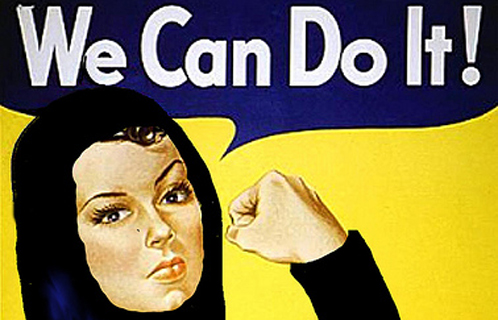Hope Blossoms, Despair Lingers for Arab Women
I came across two stories yesterday about women in the Arab world that could not have been more different.
The first was a press release I was sent from the “Network of Free Ulema” in Libya. I don’t know anything about them (other than the fact that the press release was in English, which I thought was quite curious. I’m assuming there was an Arabic version too. And the info that they’ve carefully written up in Wikipedia. They are very media savvy. Good for them!)
The press release was on the occasion of International Women’s Day in order to:
“celebrate your heroic political, social, scholarly and economic achievements. We congratulate you, and promise you that all of us, women and men, will work together towards a Libya of equality and fairness for all.”
I haven’t copied out the whole text, but I did like this line at the end:
“May the significance of this special day, become an inspiration for a New and Free Libya.”
Women’s actions can and should be an inspiration not just for women, but for everyone. I like the recognition of this.
It’s great to see this worldliness in the Ulema, and their recognition of the importance of women and the status and respect that they deserve. It gives me some hope for change. It also underlines a point I made in an article earlier this week that the up-front participation by women in the revolutions of the Middle East has forever changed their status. It’s re-iterated in a piece written by Naomi Wolf on The Middle East Feminist Revolution.
Contrast this with a heartbreaking piece in The National yesterday about the prevalence of women in Saudi Arabia who are being forced NOT to marry by their fathers and brothers. The article writes:
Amal Saleh would like to marry and have a family, but she needs her father’s permission. And he won’t give it. A university professor in her mid-thirties, Amal has had numerous suitors asking for her hand, but her father always refuses. “They are not rich, or he doesn’t like their fathers or they are not from the same social group,” she says. Work colleagues who proposed were turned away because they were not from the same tribe. Her brothers support her father, she says, because they fear “that if I had a partner he would share in my money”. For her male relatives, Amal says, “I am like a horse. They don’t treat me as a human being. They treat me as if I belong to them and they should decide what to do with this ‘thing’.” The National is not publishing Amal’s real name because her father threatened to kill her if she sought help outside the family.
It seems that a number of reasons lie behind fathers and brothers witholding permission to marry – permission which is required under Saudi Arabia’s guardianship laws for women to marry. The woman’s salary is lost to the family. They are worried that she will take away her share of the inheritance. They don’t like the family of the intended.
Even though such behaviour on the part of the family is against Islamic law – and the country’s chief mufti has stated it to be so, adding that it should bring a penalty of imprisonment, this tribal custom persists. In fact,women who protest against such behaviour are taken to court by their families for ‘disobedience’, and bafflingly the court upholds this.
Amal’s words wrench my guts. She uses a similar analogy to the period of jahiliyyah that I’ve used before. She says:
“Before Islam, they had this practice of killing a girl when she is just a baby [because] they were ashamed of her as they wanted a boy,” Amal had said in the interview. “Now I’m saying that history is being repeated. They kill us when we have emotions and can understand and are aware of our rights. Maybe if they killed me as a child it would be better than now.”




You must be logged in to post a comment Login